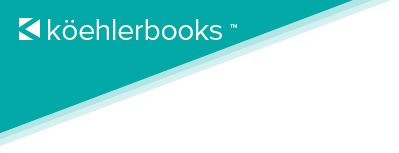
Hybrid publishing. If you’re connected to the writing community at all, it’s a buzzword you’re probably familiar with. The publishing industry has dramatically changed in the past ten years, so how can an aspiring author navigate the landscape? We’re here to break it down for you.
Let’s face it, writing a great book doesn’t always mean it’ll land you an agent and a book deal with a major publisher. Hybrid publishing has opened a new path for quality authors that might not be offered a traditional deal, especially debut authors with no sales history and a small social-media following.
In short, a hybrid deal is a mutually beneficial one: the publisher invests their full effort and time into the author, and in turn, the author shares in the production cost. The writer then has an opportunity to step into publishing and establish themselves as an author—something that will garner them more attention from other traditional publishers in the future.
As it’s gotten harder for independent publishers to cover their costs, hybrid publishing has become critical in keeping indie presses’ doors open. (We could discuss at length the importance of indie publishing as a whole, but that’s a blog for another day.) The goal of hybrid publishing is to produce books of traditionally published quality, while ensuring the publisher meets financial needs. A win-win for indie authors and publishers alike.
But it can be difficult to find hybrid publishers with reputable services in this ever-growing terrain. Luckily, the Independent Book Publishers Association (IBPA) has established a list of eleven criteria an author should look for when researching hybrid publishers. Be sure to give the entire article a read, but today we want to dive deeper into just a few of these criteria.
Submission vetting
One of the first things an author should look for in a hybrid publisher is that they carefully choose which submissions are published (unlike “vanity presses,” which publish anything).
Authors who write high-quality books deserve a chance to be published—that’s the goal of indie publishing, and Koehler Books, after all. And so it’s important that serious writers look for publishers who want to work with serious writers, and serious writers only.
Here at Koehler, our acquisitions team makes submission vetting a priority. Once an acquisitions editor has deemed a manuscript worthy, it is then passed to another team member for further consideration before contact is made with the author. We want to produce top-of-the-line books, and you should too. So don’t submit your work to presses who publish every manuscript that comes in the door. Look for publishers with respectable catalogs—your book will garner more prestige as a result.
This brings us to the next attribute of a respectable hybrid publisher.
A commitment to industry standards
Successful hybrid publishers work hard to ensure their books are up to industry standards. Overall, Koehler’s goal is to produce books of traditionally published quality, regardless of whether the deal is traditional or hybrid. We boast a well-rounded team of professionals who work with authors through every stage of the publishing process, from editorial to design to distribution.
Hybrid publishers should always provide authors with the same standard of service as traditional houses—don’t settle for those who don’t.
Transparency
The growing digital landscape has made it easier and easier for businesses to hide behind screens. But when looking for a publisher, authors need to ensure transparency.
A hybrid publisher should willingly provide authors with all the information they need. Contracts should be carefully crafted and presented, and fees should be clearly communicated. At Koehler, we pride ourselves on transparency, which is why you can find a sample invoice and contract, as well as a sample range of prices right on our website. And we promise our authors no hidden charges. When you make a hybrid deal with us, you can expect a single, one-time fee—presented up front, with no misleading fine print.
An ample royalty
One of the perks of hybrid publishing is that the author receives a higher royalty than typical traditional deals. Because the author agrees to front some of the production cost, they also benefit from a higher payout on the back end.
Our hybrid authors benefit from a high royalty often beginning around 60%. We also set guidelines for an increase in royalty payouts, depending on how many books the author sells.
If a hybrid publisher doesn’t agree to pay higher royalties than the typical traditional arrangement, then they aren’t holding up their side of the hybrid bargain.
So turn the tables, authors, and start vetting the publishers themselves! The slush pile is stacked high, but when you know what to look for, you’re sure to find the right arrangement for your book.
Read more about the Koehler Books hybrid model here!








